

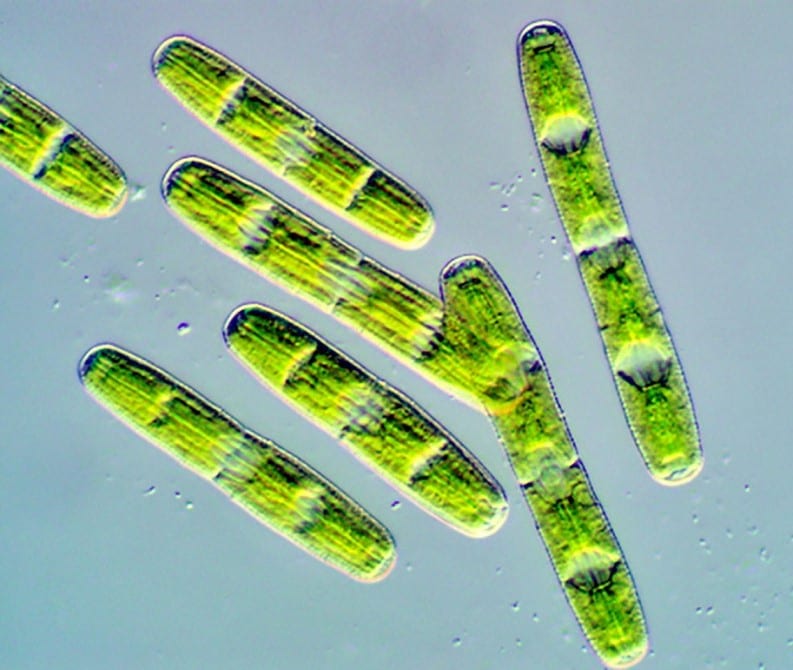
Algal genome provides insights into first land plants
In order to shift from water to land – a transition that still puzzles scientists – plants had to protect themselves from drying out and from ultraviolet (UV) radiation, and they had to develop structures to support themselves without the buoyancy provided by water....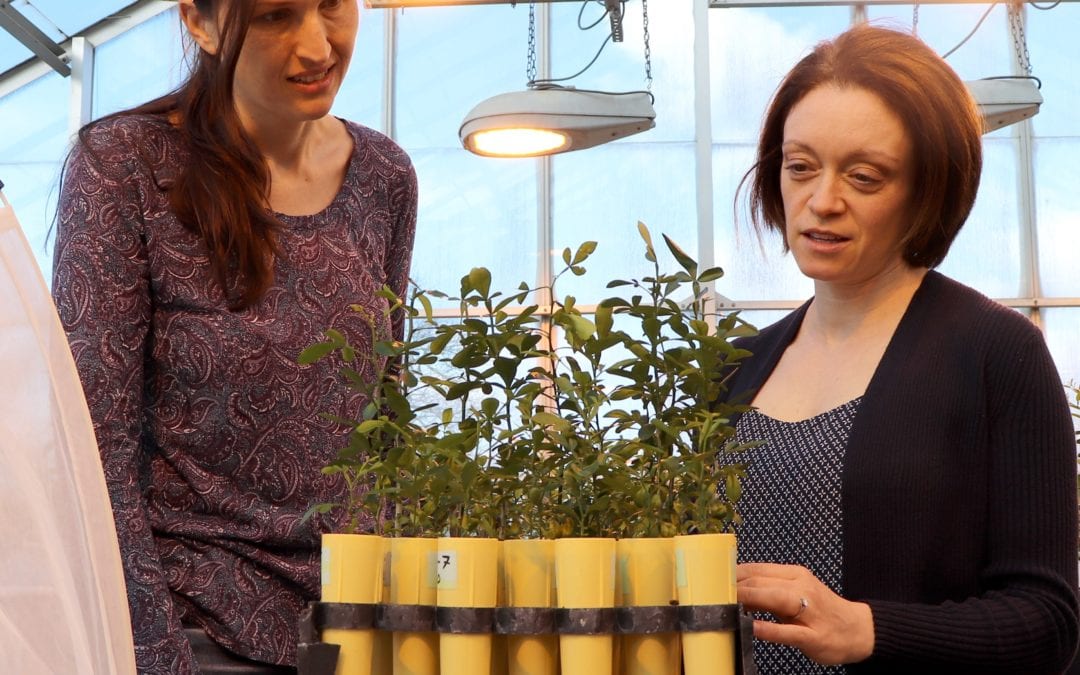
Harnessing Psyllid Peptides to Fight Citrus Greening Disease
Citrus greening disease, also called huanglongbing (HLB), is a bacterial infection of citrus trees that results in small, misshapen and sour fruits that are unsuitable for consumption, ultimately killing the tree. Because there is no cure, HLB is a major threat to the...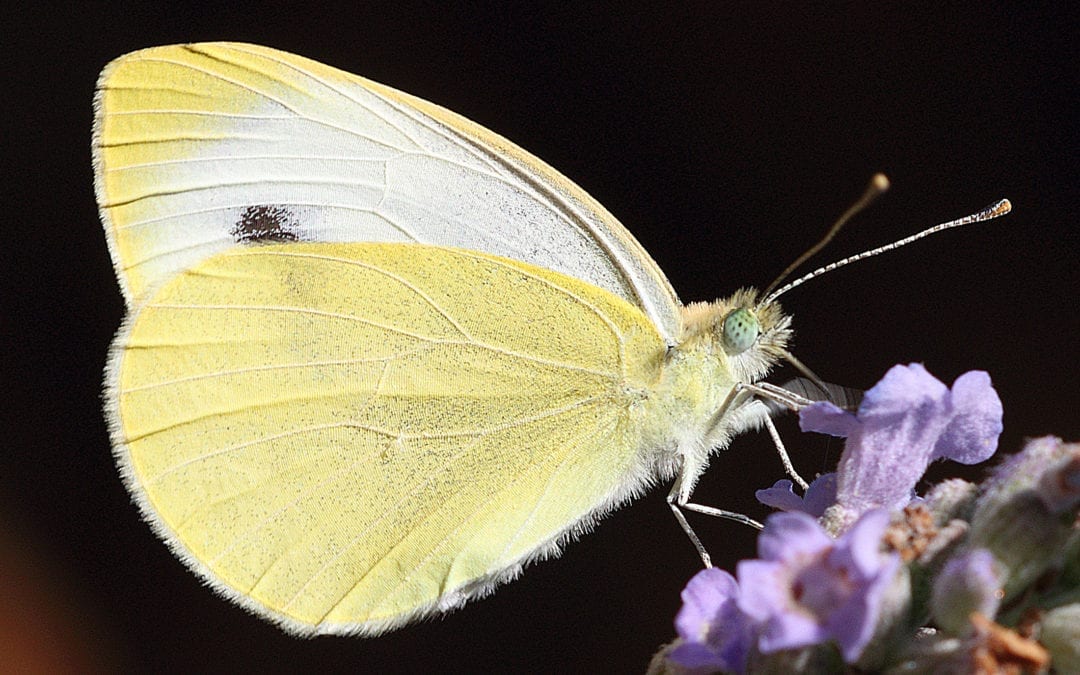
Wallflowers and the Butterflies that Don’t Love Them
Alan Renwick’s research on the wormseed wallflower began in the 1980s, after a chance meeting with Tufts University professor Frances Chew at a Gordon conference. “I had decided to work on cabbage pests, because Ithaca is in a cabbage-growing area,” Renwick said....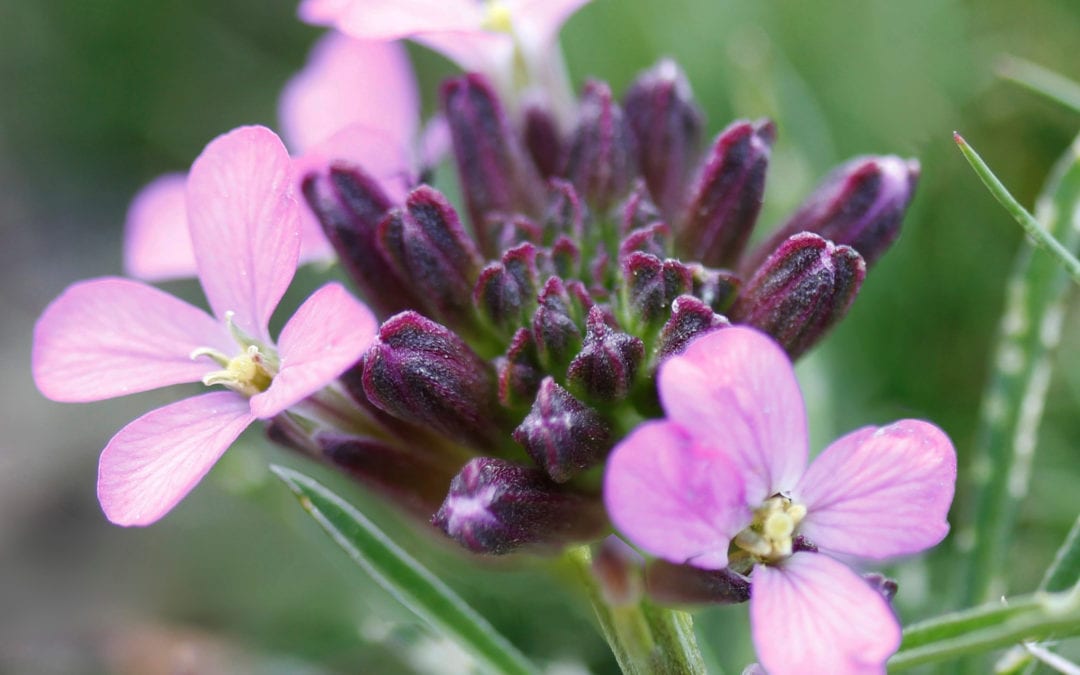
Wallflowers Could Lead to New Drugs
Plant-derived chemicals called cardenolides have long been used to treat heart disease, and have shown potential as cancer therapies. But the compounds are very toxic, making it difficult for doctors to prescribe a dose that works without harming the patient. For...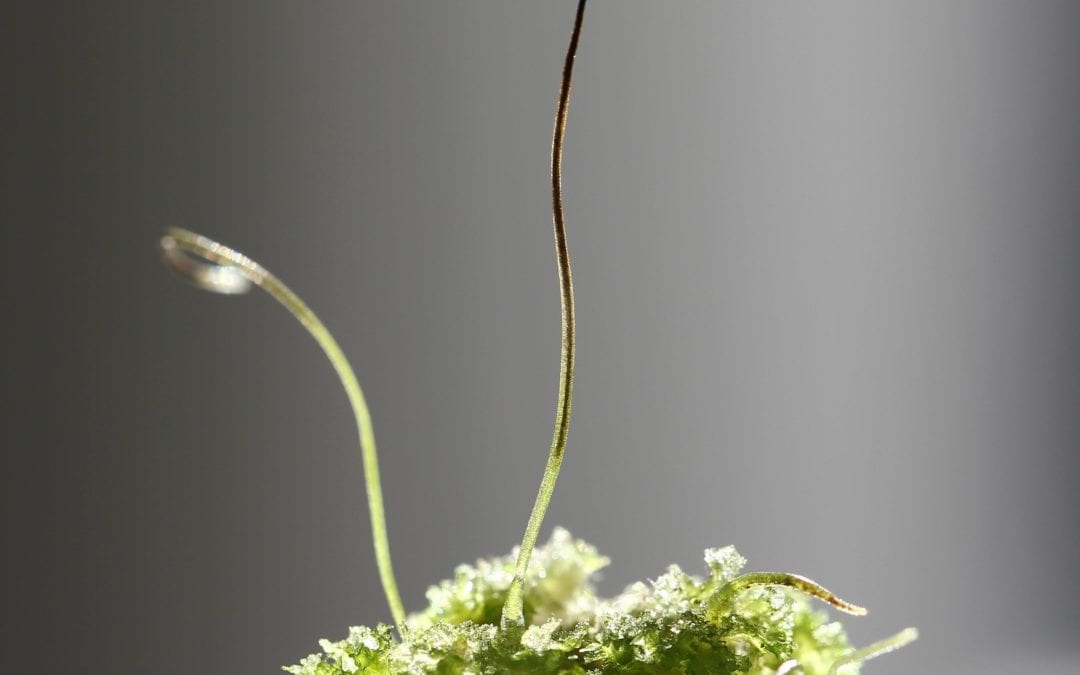
Hornwort Genomes Could Lead to Crop Improvement
Some 500 million years ago – when our continents were likely connected in a single land mass and most life existed underwater – hornworts were one of the first groups of plants to colonize land. But biologists have never understood much about the genetics of these...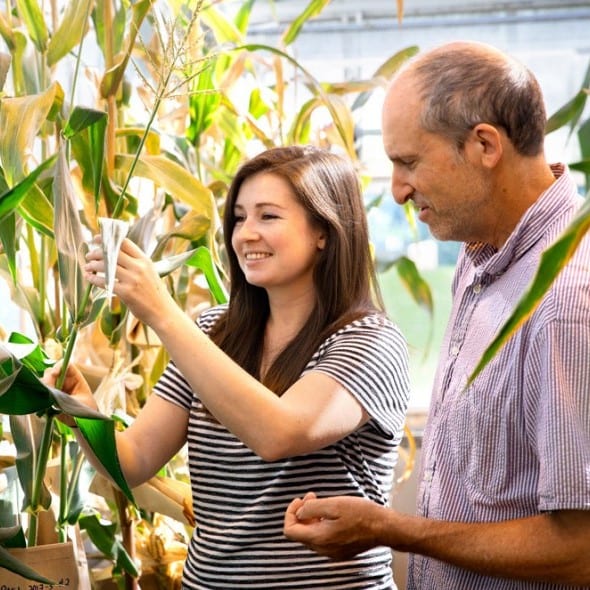
Speedy Recovery: New Corn Performs Better in Cold
Nearly everyone on Earth is familiar with corn. Literally. Around the world, each person eats an average of 70 pounds of the grain each year, with even more grown for animal feed and biofuel. And as the global population continues to boom, increasing the amount of...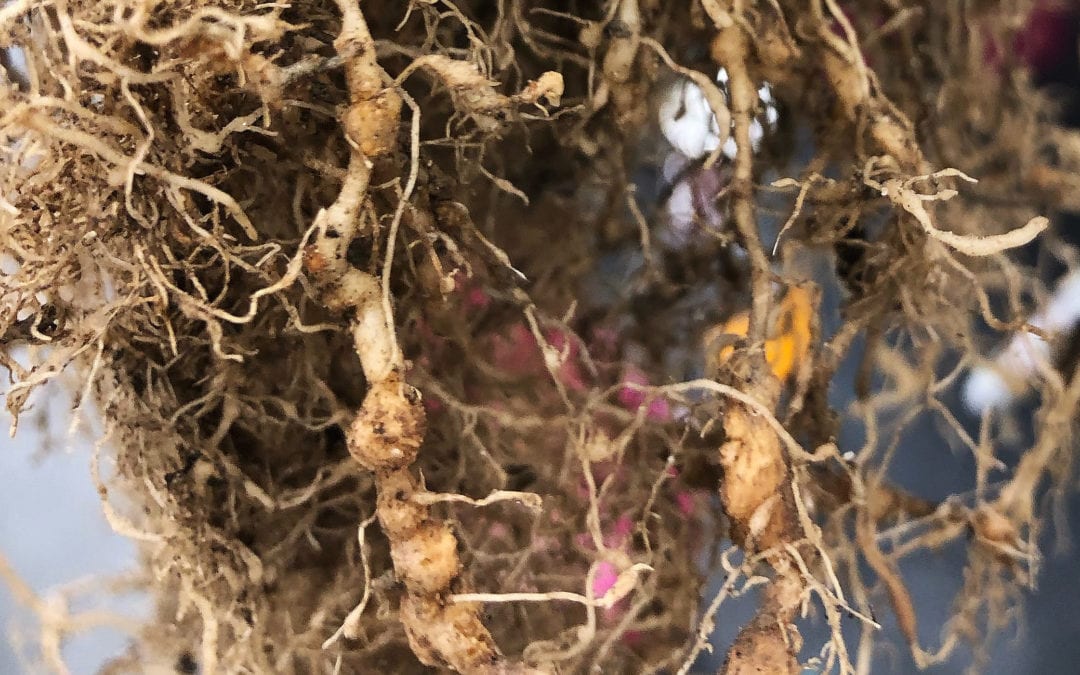
Plants Found to Speak Roundworm’s Language
Nematodes are tiny, ubiquitous roundworms that infect plant roots, causing more than $100 billion in crop damage worldwide each year. New research has found that plants manipulate the worms’ pheromones to repel infestations, providing insights into how farmers could...
Reflections on Mary Clutter
We at BTI were deeply saddened to hear of the passing of Dr. Mary Clutter on December 8. Many know Mary from her time at the National Science Foundation, where she began as Program Director in the 1970s, working her way up to become Assistant Director for the...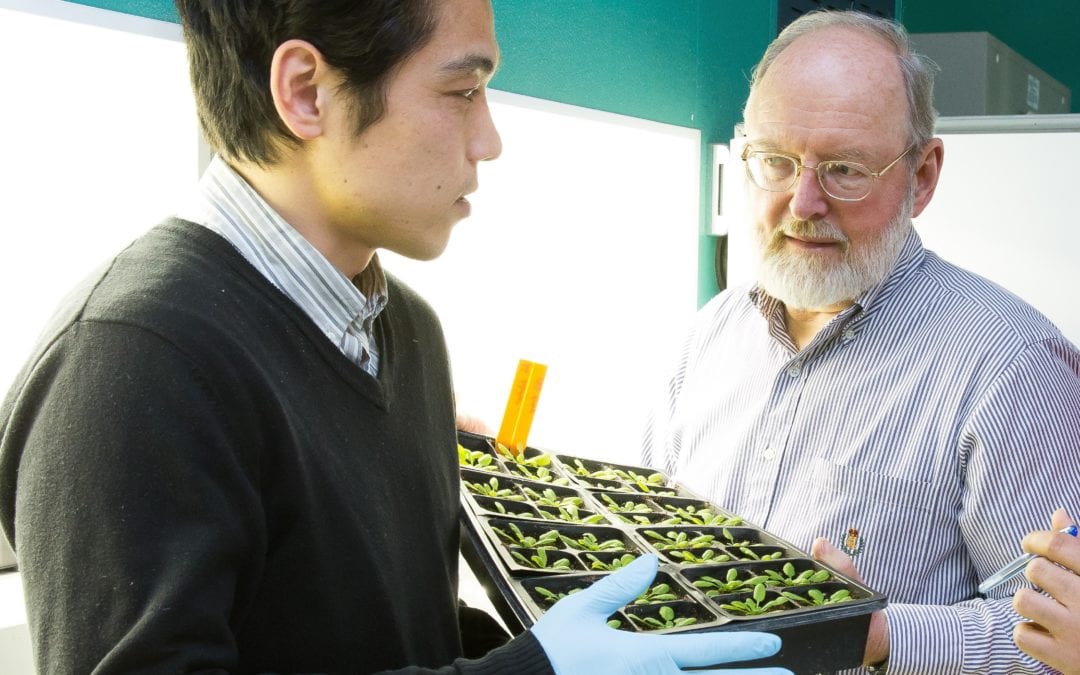
Aspirin-Like Compounds Could Treat Numerous Human Diseases
People have used aspirin to treat pain, fever and inflammation for more than a century, and the drug is also used to reduce the risk of strokes, heart attacks and some cancers. An estimated 100 billion aspirin tablets are taken worldwide each year, but how it works is...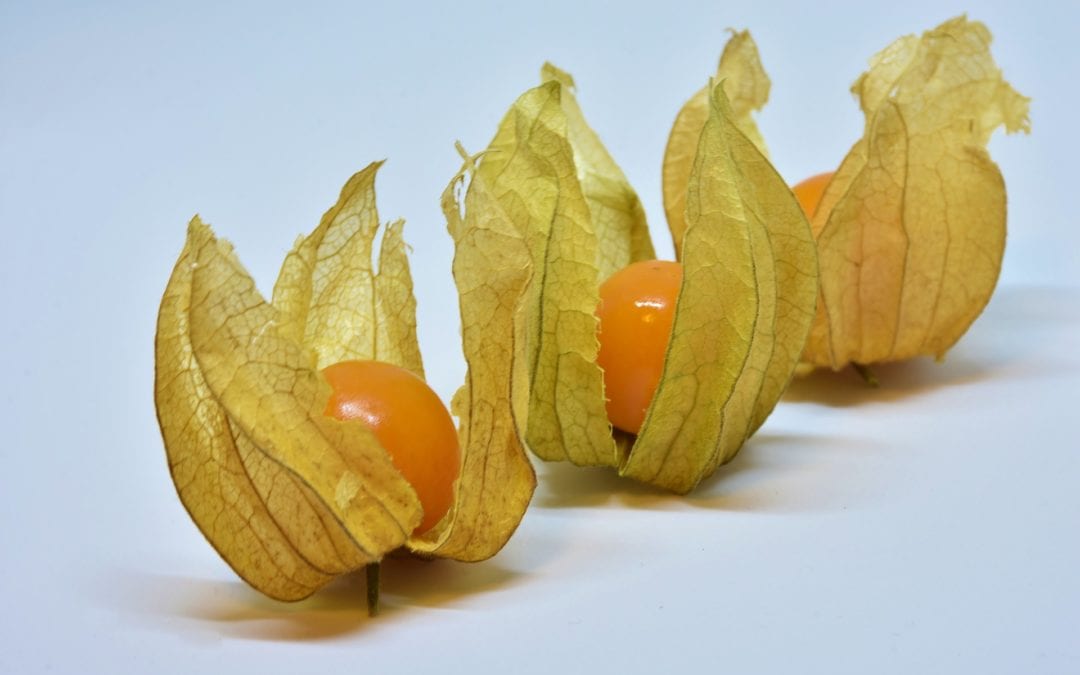
Groundcherries: a New Treat
Groundcherries: a New Treat by Carol Bayles, Master Gardener, with input from Esperanza Shenstone, Boyce Thompson Institute Note: this article originally appeared in the Cornell Cooperative Extension Garden Post newsletter Most gardeners love to try new things and...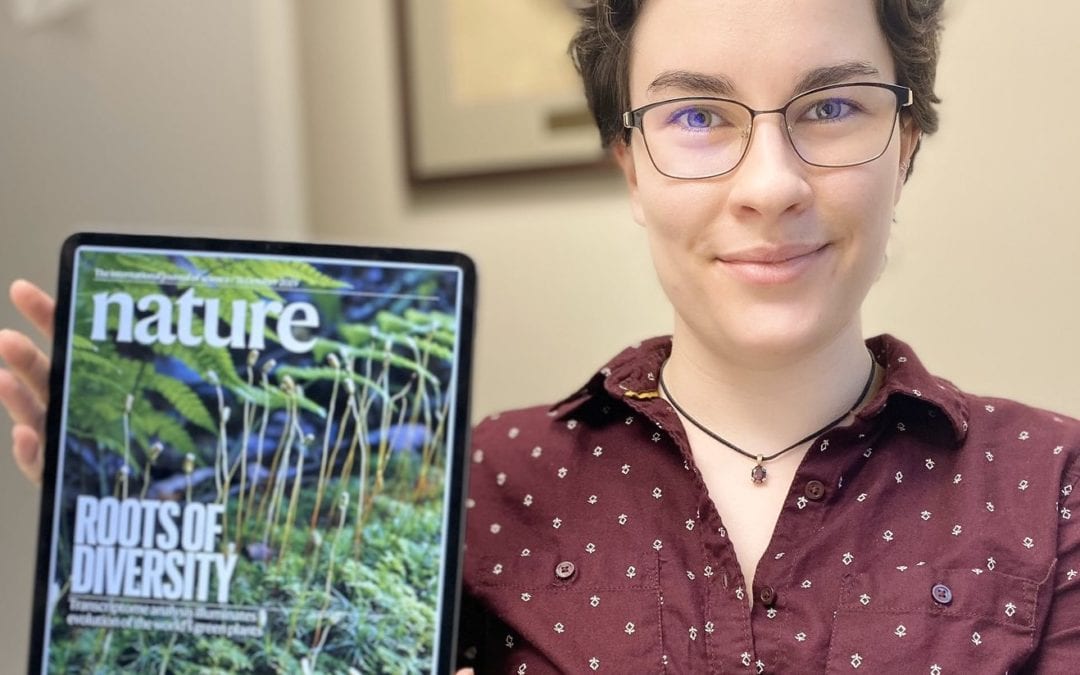
BTI Researchers Publish High-Impact Nature Papers
We would like to congratulate a pair of BTI faculty members who recently published high-impact research papers in the prestigious research journal Nature. Frank Schroeder and colleagues discovered the first clues on how gut health influences brain health. Published on...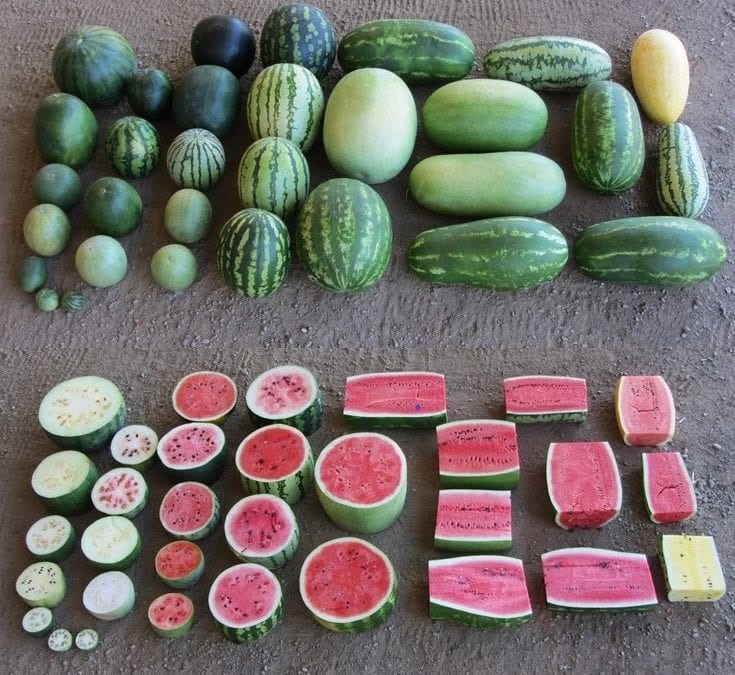
Harvesting Genes to Improve Watermelons
When many people think of watermelon, they likely think of Citrullus lanatus, the cultivated watermelon with sweet, juicy red fruit enjoyed around the world as a dessert. Indeed, watermelon is one of the world’s most popular fruits, second only to tomato – which many...
BTI’s Michelle Heck and Joyce Van Eck Guest on Podcasts
Boyce Thompson Institute is happy to share that two of our faculty members recently appeared as guests on popular podcasts. The content of these podcasts illustrate the breadth of research being done at the Institute to help increase global food security, improve...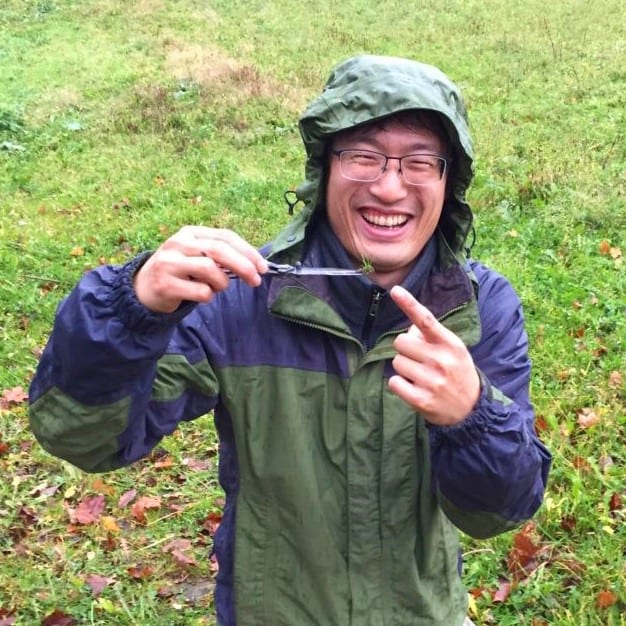
BTI Researchers Unlocking Hornworts’ Secrets
Hornworts are a little-studied, ancient group of plants with some very unique biology, including their methods of securing carbon and nitrogen. Unlocking these secrets may help researchers boost agricultural output and use less synthetic fertilizer, as well as provide...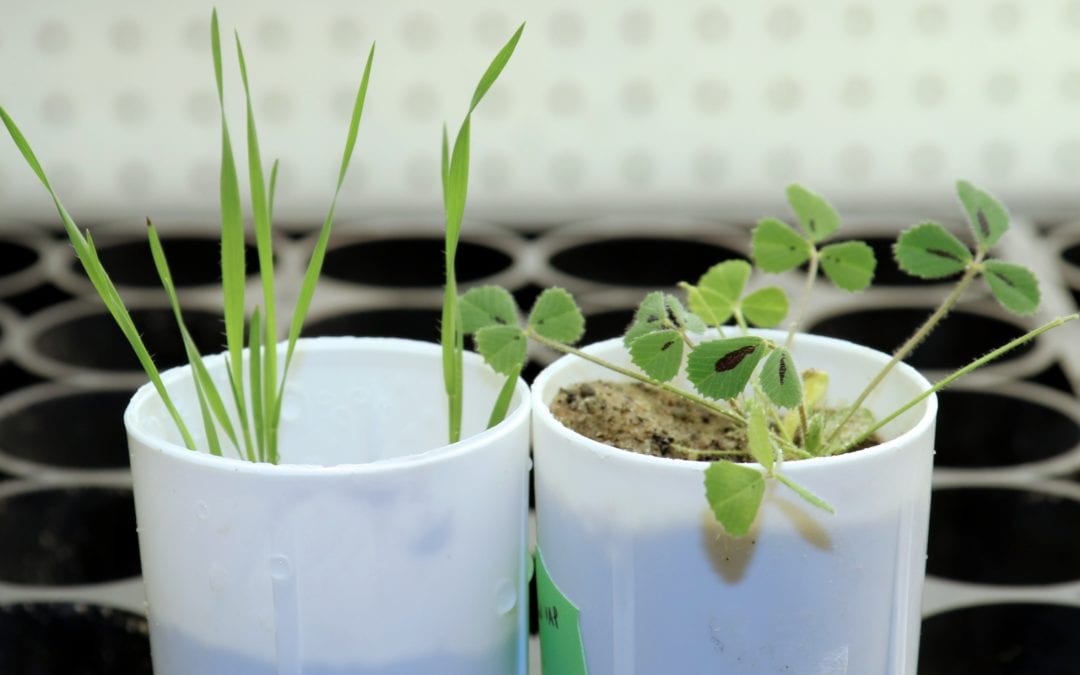
Plant Gene Discovery Could Help Reduce Fertilizer Pollution in Waterways
Over-fertilization of agricultural fields is a huge environmental problem. Excess phosphorus from fertilized cropland frequently finds its way into nearby rivers and lakes. A resulting boom of aquatic plant growth can cause oxygen levels in the water to plunge,...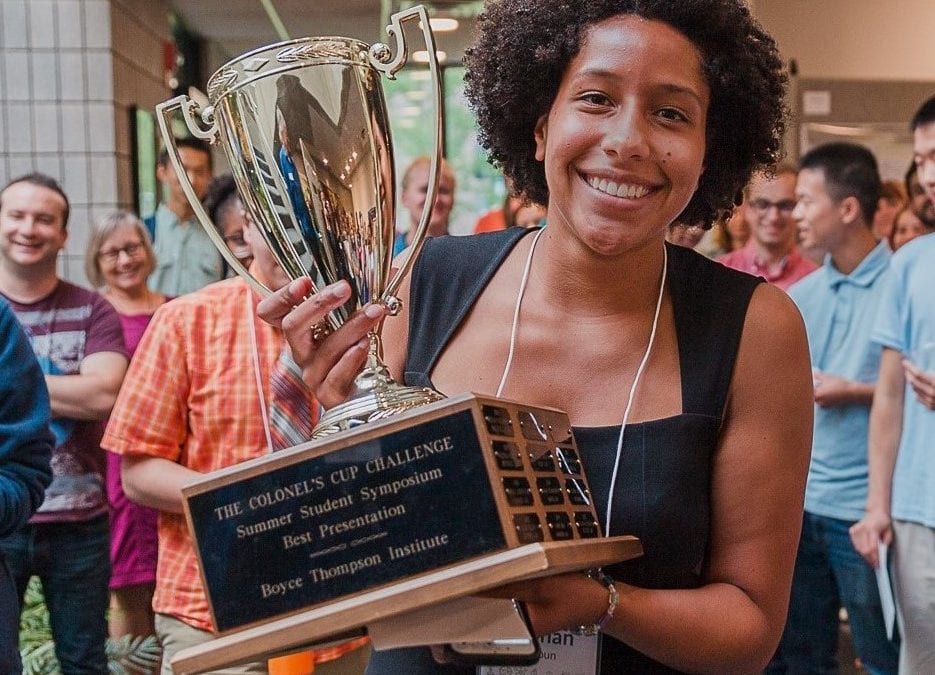
BTI Celebrates Another Successful Summer Internship Program
Boyce Thompson Institute celebrated its 19th annual Plant Genome Research Program (PGRP) summer internship program with an award ceremony at the George and Helen Kohut Symposium, which was held at the Institute on August 8. The PGRP focuses on training and inspiring...
BTI Researchers Discover Compound that Speeds Sexual Development and Decline
Every day, people are exposed to myriad chemicals, both natural and synthetic. Some of these compounds may affect human physical development, but testing them directly on people would be grossly unethical. To get around this dilemma, researchers from Boyce Thompson...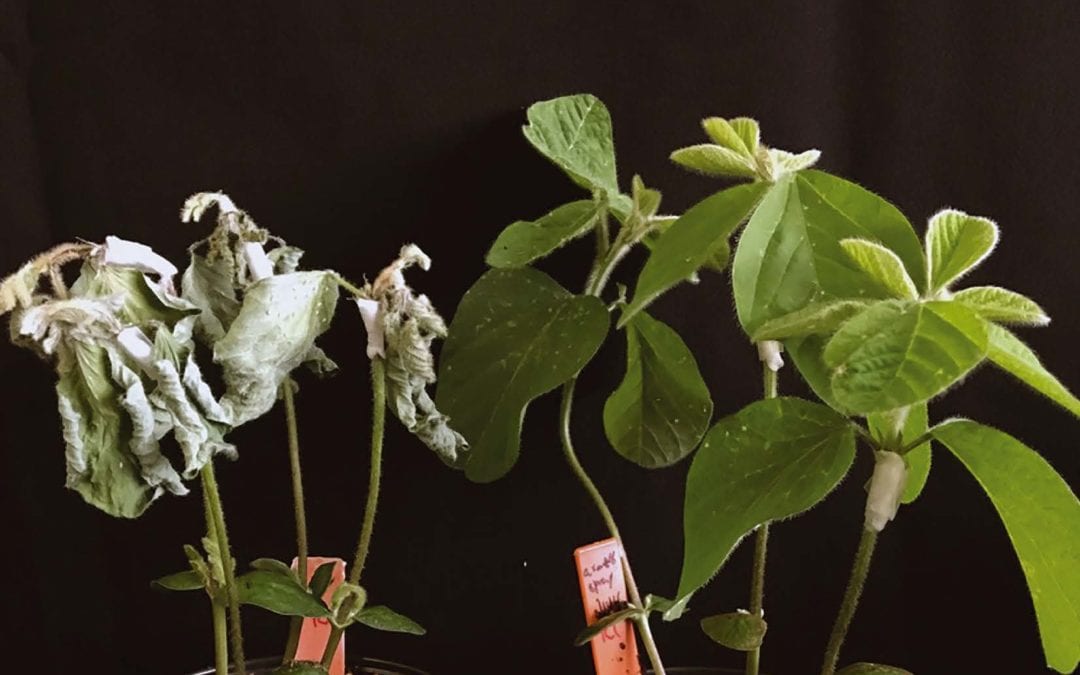
Worm Pheromones Protect Major Crops
Protecting crops from pests and pathogens without using toxic pesticides has been a longtime goal of farmers. Researchers at Boyce Thompson Institute have found that compounds from an unlikely source – microscopic soil roundworms – could achieve this aim. As described...
Cluster Hire Yields Three New Faculty Members
Boyce Thompson Institute is pleased to announce the hiring of three faculty members as part of its new and innovative “cluster hire” approach. Out of 113 applicants, the three people who will join BTI over the next year are: Magdalena (Magda) Julkowska, a postdoctoral...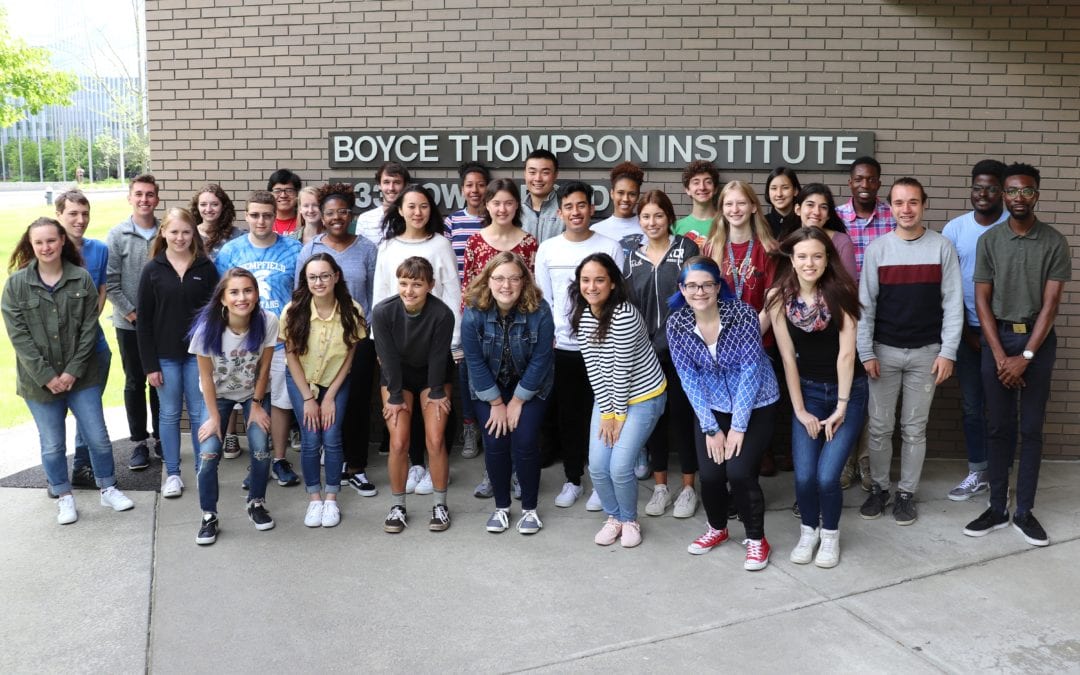
BTI Welcomes Summer Student Interns
On June 3, Boyce Thompson Institute welcomed 35 of the country’s brightest undergraduate students from universities around the country to experience the life of a researcher for 10 weeks. Eight more interns from area high schools will join the Institute for seven...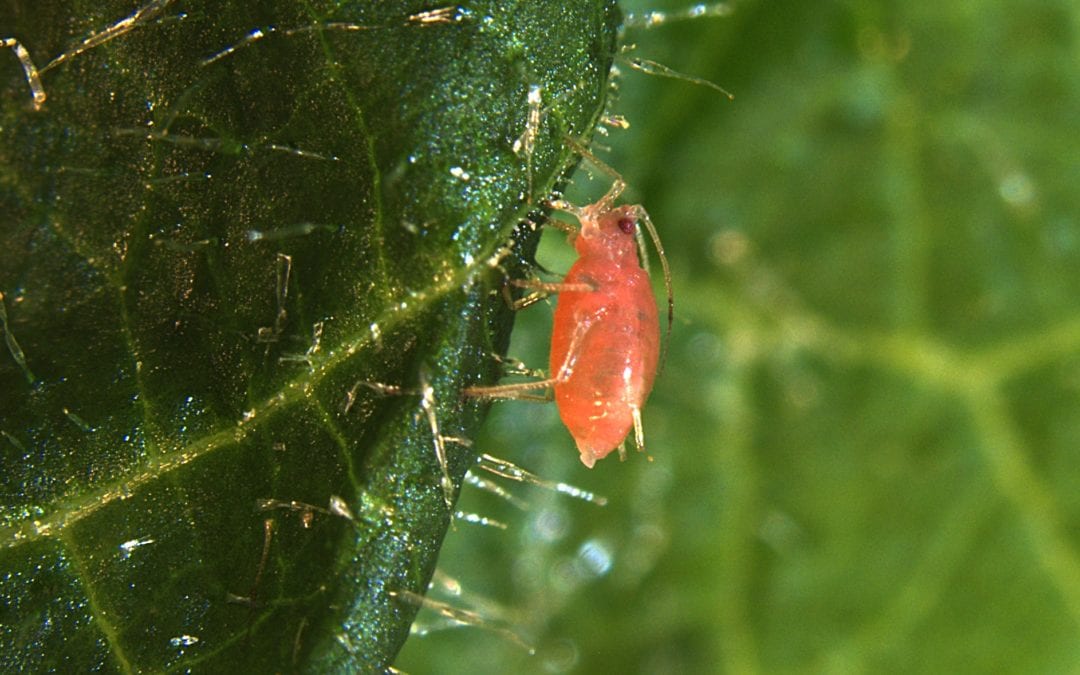
BTI Researchers Discover Interactions Between Plant and Insect-Infecting Viruses
Aphids and the plant viruses they transmit cause billions of dollars in crop damage around the world every year. Researchers in Michelle Heck’s lab at the USDA Agricultural Research Service and Boyce Thompson Institute are examining the relationship at the molecular...
Congratulations to BTI’s PhD Graduates!
We are pleased to announce that seven Boyce Thompson Institute researchers received their PhD degrees during the Cornell University commencement ceremony on May 26. Congratulations to our newest alumni: Mariko Alexander, Heck lab, “Searching for the missing...
BTI’s Olivia Gomez Places 4th in APS Councilors’ Challenge
The Boyce Thompson Institute is pleased to announce that Olivia Gomez, a third-year undergraduate researcher in Michelle Heck’s lab, has placed fourth in the American Phytopathological Society’s Councilors’ Challenge. “Thank you to my mentor Michelle and to the...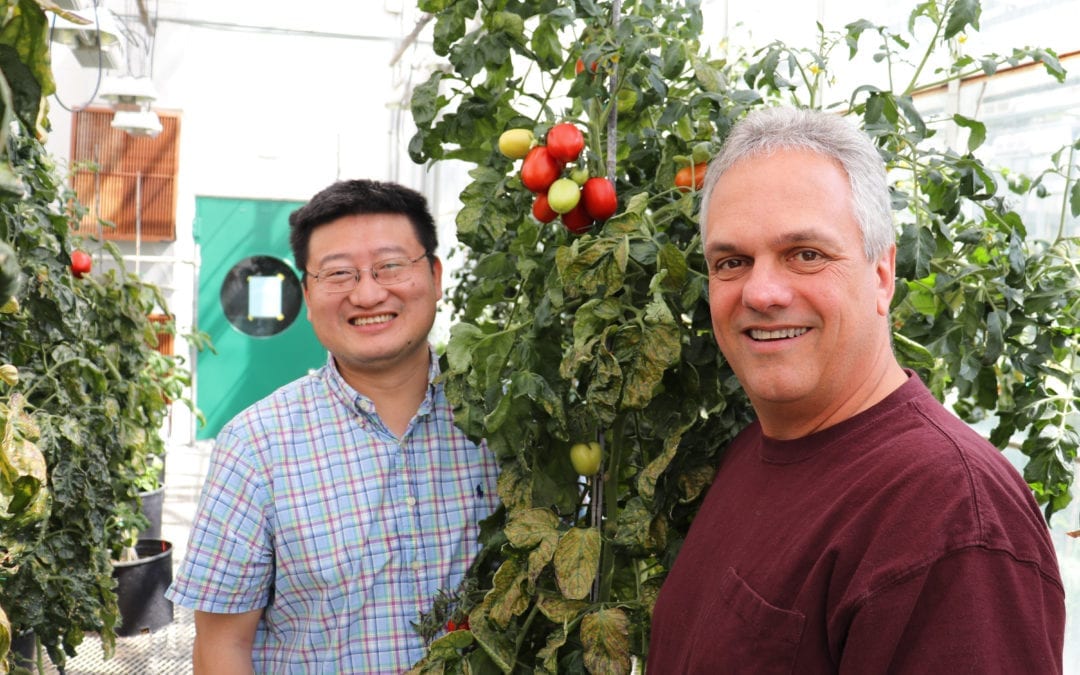
BTI Scientists Create New Genomic Resource for Improving Tomatoes
Tomato breeders have traditionally emphasized traits that improve production, like larger fruits and more fruits per plant. As a result, some traits that improved other important qualities, such as flavor and disease resistance, were lost. Researchers from Boyce...
BTI’s Maria Harrison Elected to National Academy of Sciences
Maria Harrison, William H. Crocker Professor at Boyce Thompson Institute and Adjunct Professor in the School of Integrative Plant Science (SIPS) at Cornell University, has been elected to the National Academy of Sciences. Harrison is one of 100 new members announced...
BTI Alumni Share Advice with PhD Students, Post Docs
Graduate students and post docs would be wise to join groups that teach leadership and networking skills, which could help them compete for jobs outside of academia. So say three alumni who recently visited Boyce Thompson Institute for an all-day event organized by...
BTI’s Big Red Anniversary: 40 Years at Cornell
The Boyce Thompson Institute of Corvallis, Oregon? It almost happened. April 24 will mark the 40th anniversary of the dedication ceremony for BTI’s current facilities on the Cornell University campus in Ithaca, NY. The Institute’s researchers and staff will celebrate...
Inaugural BTI Alumni Recognition Awards
It is with great enthusiasm and pride that Boyce Thompson Institute (BTI) will recognize the first recipients of BTI’s Alumni Recognition Awards during the 2019 PGS Career Symposium on April 26, 2019. Several highly qualified individuals were nominated for the...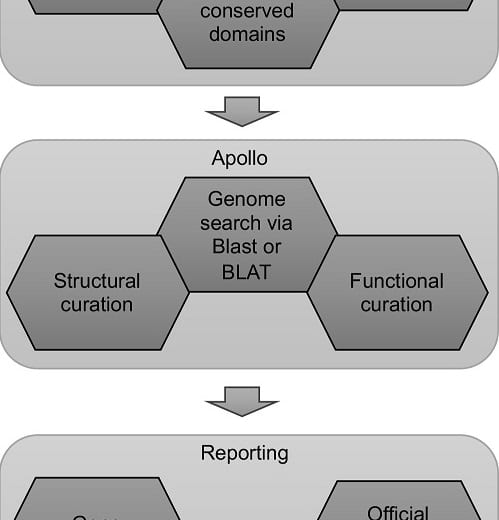
A universal framework combining genome annotation and undergraduate education
As genome sequencing becomes cheaper and faster, resulting in an exponential increase in data, the need for efficiency in predicting gene function is growing, as is the need to train the next generation of scientists in bioinformatics. Researchers in the lab of Lukas...
BTI Promotes Faculty Member Fei
David Stern, president of the Boyce Thompson Institute (BTI), is delighted to announce that faculty member Zhangjun Fei has been promoted to Full Professor on February 27, 2019. Fei was evaluated on his achievements to date and the potential he possesses. Fei has made...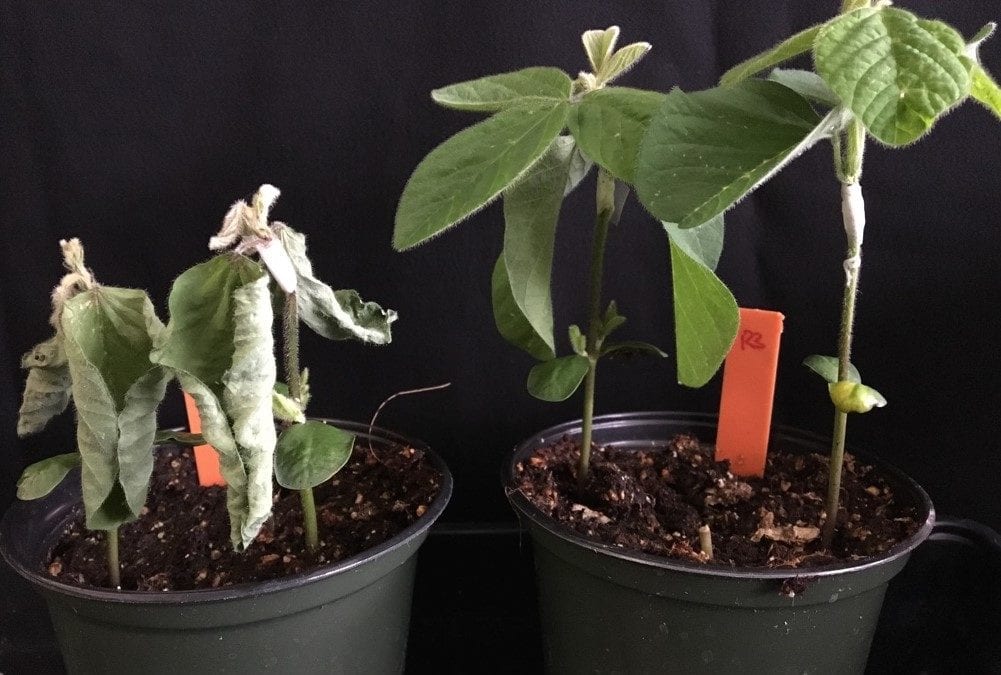
Ascribe Bioscience Receives SBIR Award from NSF
On January 29, 2019, Ascribe Bioscience became the first company based on technology developed at the Boyce Thompson Institute (BTI) to receive a Small Business Innovation Research (SBIR) grant. The agbiotech startup will use the $225,000 Phase I award from the...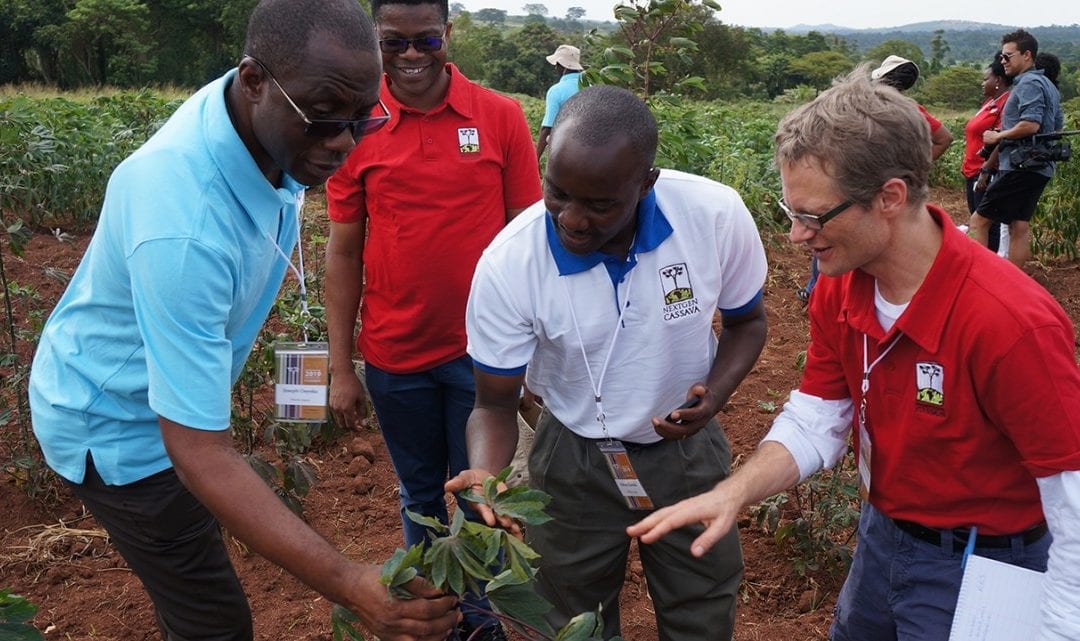
Cassava experts gather to champion ‘orphan crop’
It’s a dietary staple for millions of Africans, but cassava has traditionally received little attention from scientists and plant breeders in comparison to cash crops such as wheat and maize. However, researchers have recently been working to find cassava a scientific...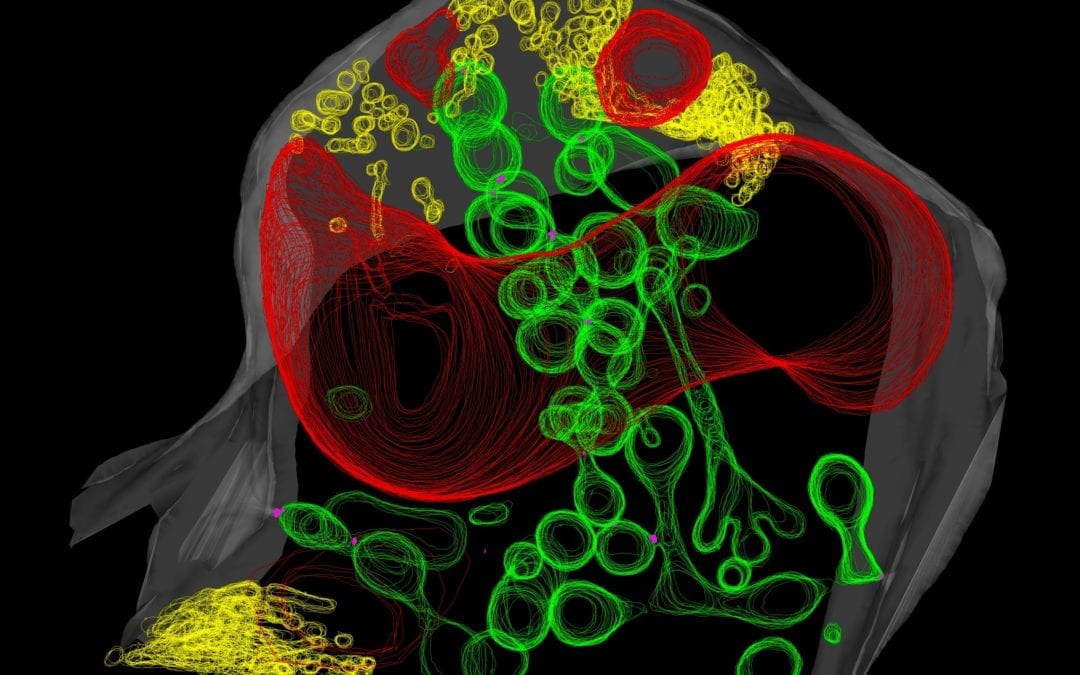
Plant–Fungal Interface Gets Tubular
For hundreds of millions of years, plants and fungi have formed symbiotic relationships to trade crucial nutrients, such as phosphate and fatty acids. This relationship is extremely important to the growth and survival of both organisms, and solving the mystery of how...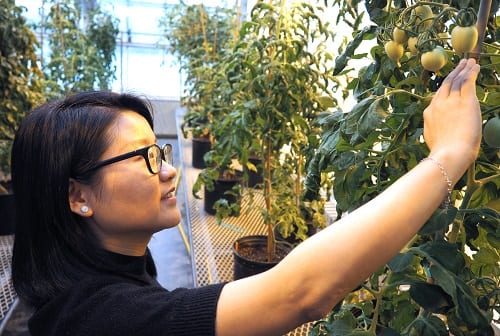
New CRISPR database to catalyze collaborations
Recently developed gene editing tools like CRISPR/Cas enable scientists to figure out the functions of myriad plant genes. While these studies could eventually lead to the creation of crops with improved traits like increased disease resistance or higher yield,...
Empowering Youth Through Science: Charlie Trautmann Joins BTI Board
BTI is excited to welcome Charlie Trautmann as the newest addition to our Board of Directors. Trautmann brings a wealth of leadership and organizational development experience on non-profit boards, as well as a passion for educating children about science. Although he...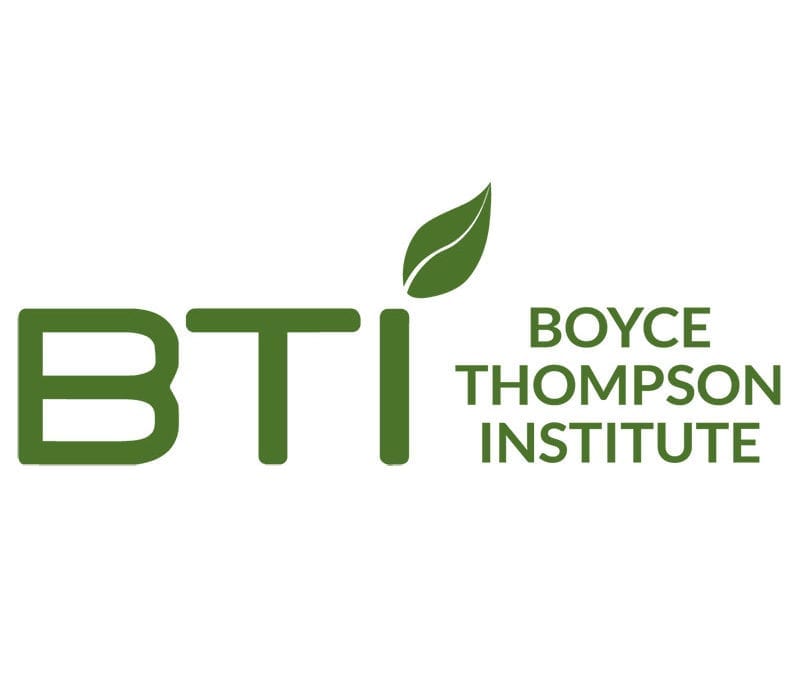
A message from the president regarding the government shutdown
Dear BTI Community: As we collectively navigate the longest government shutdown in United States history, I know that many of you have questions and concerns about the impact on BTI, our United States Department of Agriculture (USDA) colleagues, and the broader...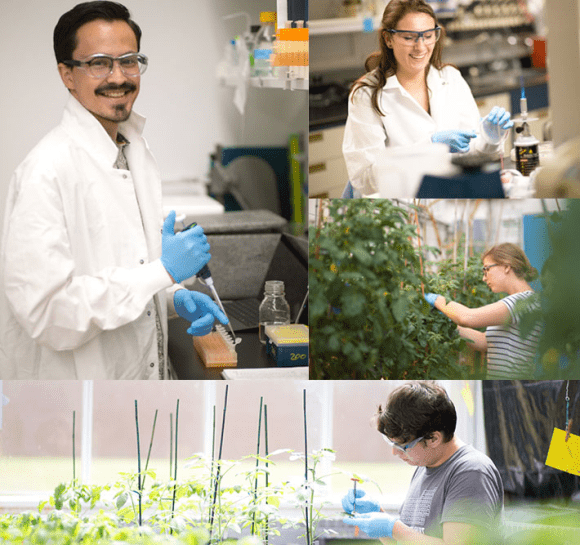
BTI Now Accepting 2019 Plant Genome Research Program Summer Internship Applications!
The 2019 Plant Genome Research Program at the Boyce Thompson Institute (BTI) and Cornell University is currently seeking undergraduate and local high school summer internship applicants! The summer internship programs at BTI offer students unmatched opportunities to...
Orange is the new white: New sweetpotato data is something to be thankful for
The genome sequences of I. trifida and I. triloba can be used as robust references to facilitate sweetpotato breeding. The genomic resources developed in this study set the stage for increased rates of genetic gains for key traits such as yield, resistance to disease, and high beta-carotene.
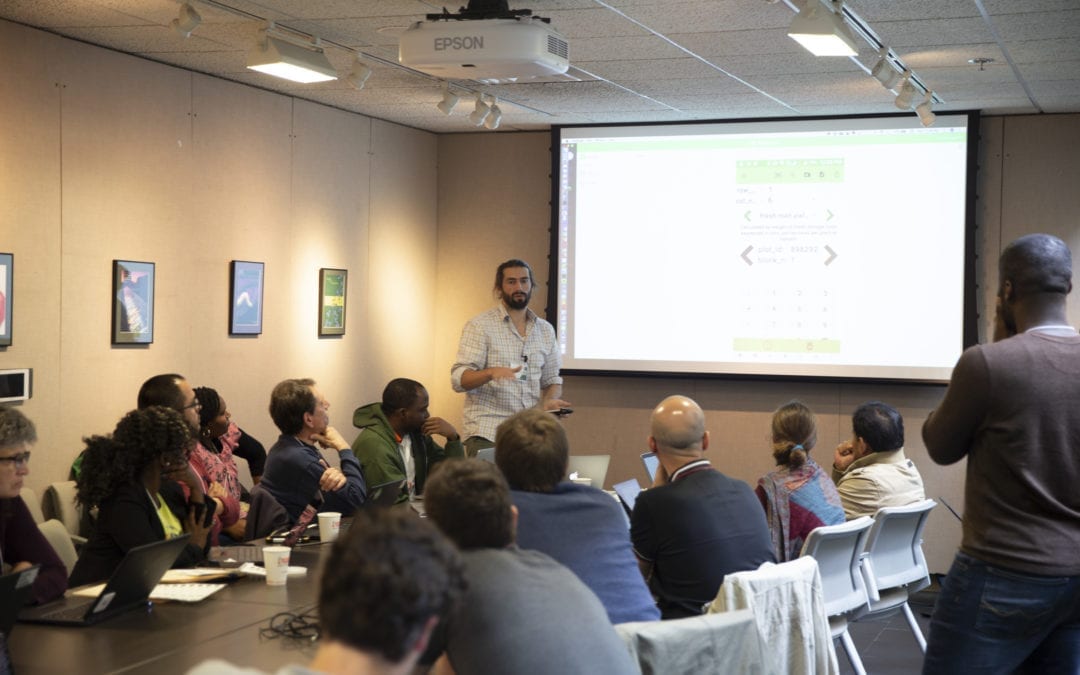
Transforming Breeding through Integrated Data Management and Analysis
Together with the BCBC, GOBii, Cassavabase, and Cornell University, BTI recently hosted a fall workshop titled “Transforming Breeding through Integrated Data Management and Analysis”. Attendees from around the globe gathered in Ithaca for a week-long...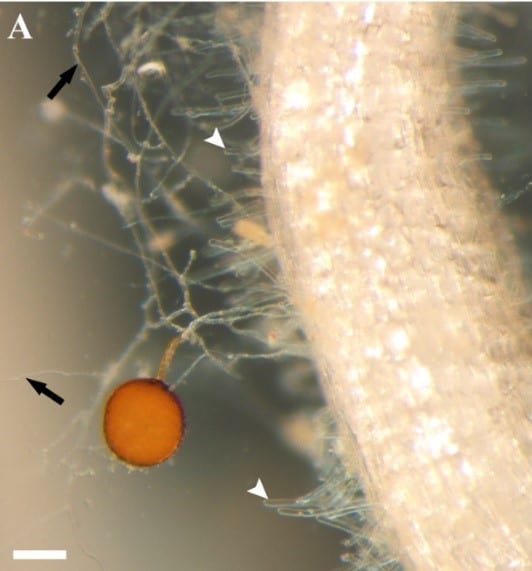
Back to our roots: Insights from genomes of a plant-associated fungus and its bacterial endosymbionts
In an article published this month in the journal New Phytologist, researchers at the Boyce Thompson Institute and the National Center for Genome Resources describe the genome sequences (DNA sequences), of the fungus Diversispora epigaea (formerly known as Glomus...
CRISPR tames the wild groundcherry
ITHACA, NY – You might not have heard of the groundcherry, or at least, never tasted one. But that could soon change thanks to research from the Van Eck Laboratory at Boyce Thompson Institute (BTI). The groundcherry (Physalis pruinosa) is approximately the same size...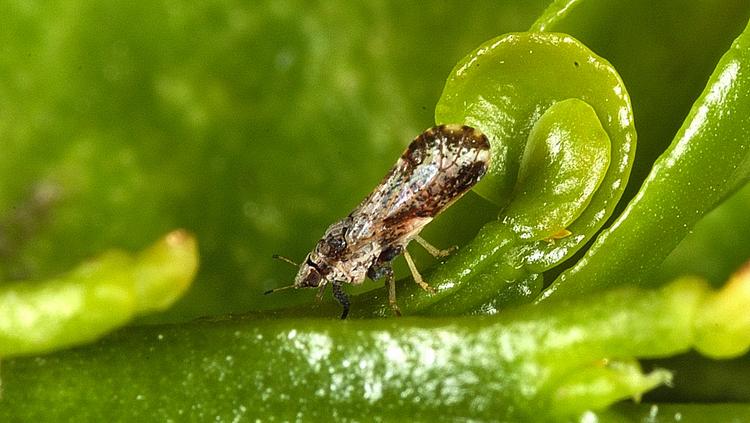
Blood, sweat and tears: All in a day’s work fighting citrus greening disease
Around this time last year, PhD student Angela Kruse and postdoctoral scientist Dr. John Ramsey were huddled over microscopes, using tiny needles to painstakingly extract blood, also known as hemolymph, from 300 Asian citrus psyllids – insects about the size of...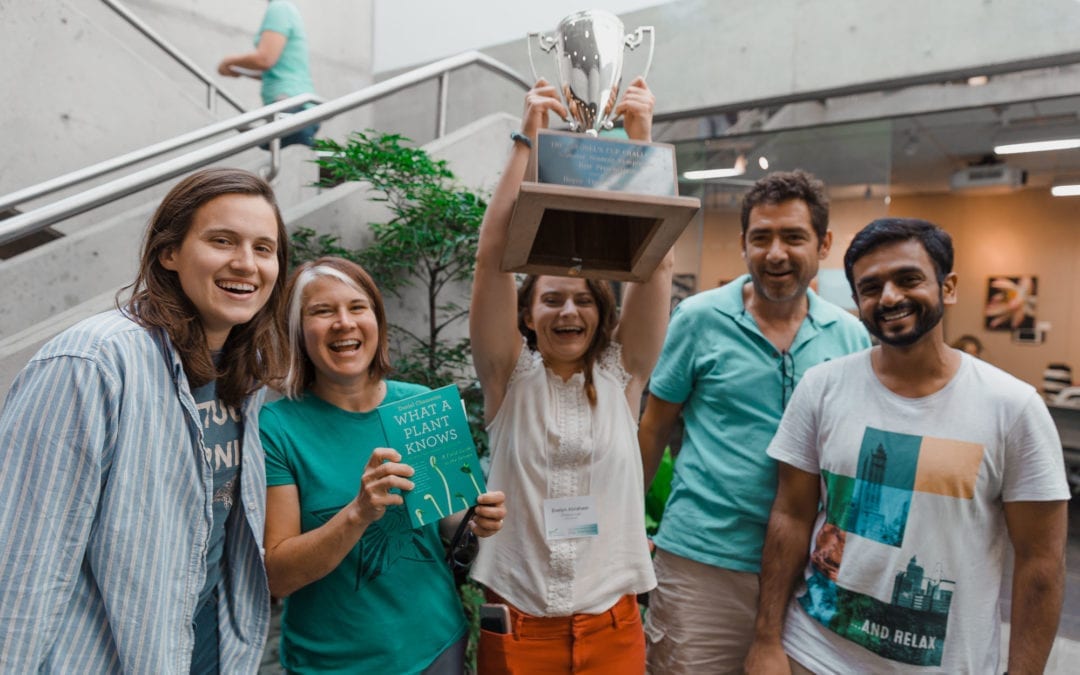
2018 PGRP Symposium marks finale of intern researchers’ summer
The Boyce Thompson Institute’s (BTI’s) 2018 class of summer interns wrapped up their summer by presenting research talks and posters at the annual Plant Genome Research Program (PGRP) Student Symposium. Now in its 17th year, BTI’s annual PGRP symposium provides a...
Plant scientists call for renewed focus on empowerment of trainees
Changes in the workforce are challenging academia to prepare scientists to be adaptable and adept at communicating across boundaries. To meet these demands, the Plant Science Research Network (PSRN) is shifting the focus to enable trainees to take ownership of their...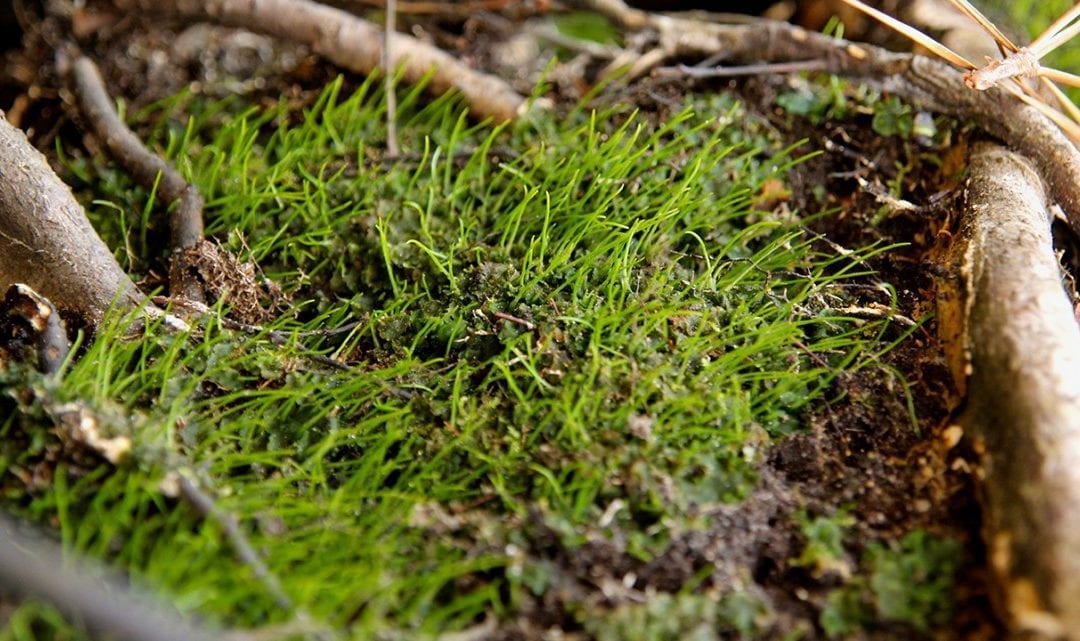
NSF awards BTI $1M to study plant-bacteria symbiosis
Professor Dr. Fay-Wei Li has been awarded a $1.1 million NSF grant to study hornwort/bacteria symbiosis. The hornwort plant relies on nitrogen-fixing soil bacteria to give it life and unlocking the secrets to how that works may help reduce agricultural dependence on...
A Future in Food Security: A Spotlight of Akriti Bhattarai
2018 PGRP intern Akriti Bhattarai reflects on her summer research experience, highlighting food security, San Diego, liquid nitrogen, and cows!

BTI promotes faculty members Schroeder and Van Eck
Boyce Thompson Institute president, David Stern, has officially announced promotions for faculty members Frank Schroeder and Joyce Van Eck. Both researchers were thoroughly reviewed and evaluated on both their achievements to date and the potential they possess.

Boyce Thompson Institute leadership provides scholarships to students pursuing degrees in STEM
The Boyce Thompson Institute (BTI) is honored to announce the awarding of four, $1,000 scholarships to first-generation college students from Groton, Ithaca, Lansing and Newfield. One student from each school was chosen based on their intention to study a STEM-related...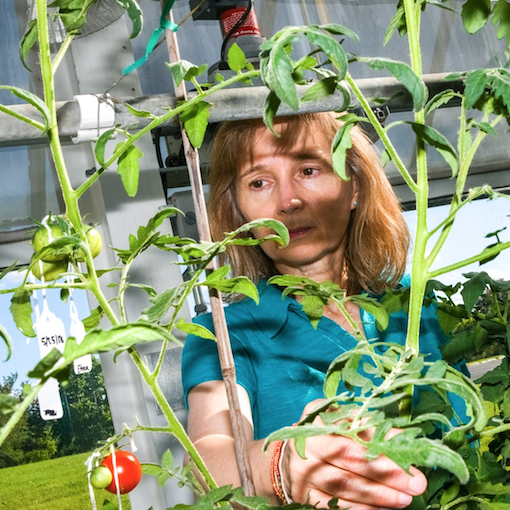
CRISPR can speed up nature—and change how we grow food
BTI Associate Professor Joyce Van Eck’s gene editing research is the featured cover story of the August 2018 edition of WIRED Magazine.
